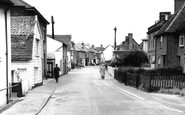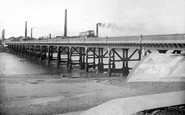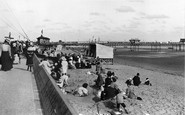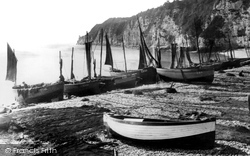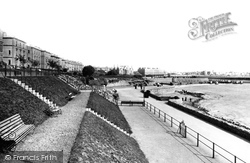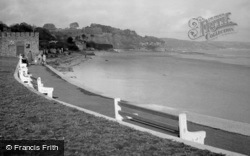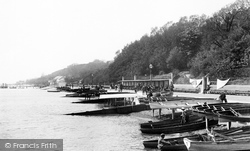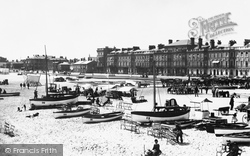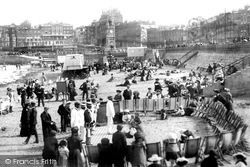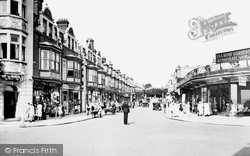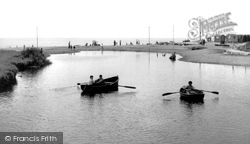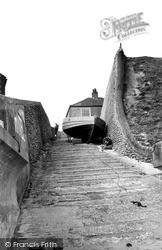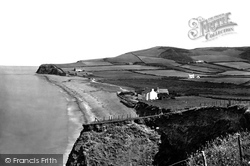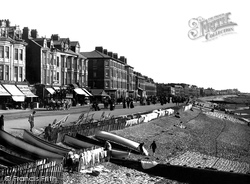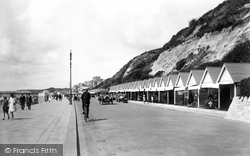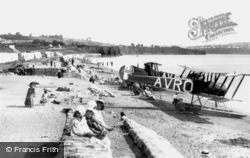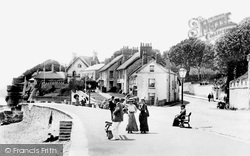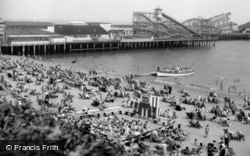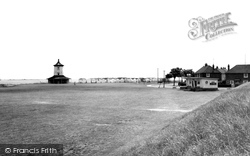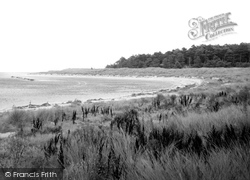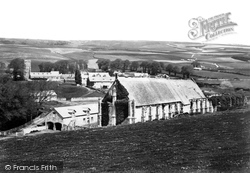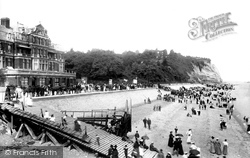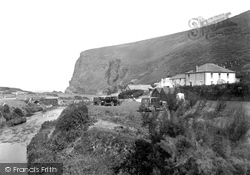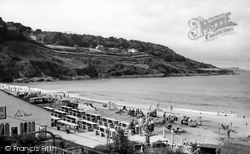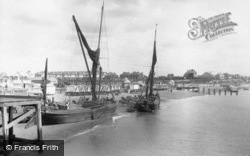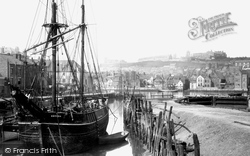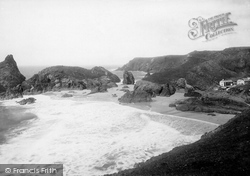Places
12 places found.
Those places high-lighted have photos. All locations may have maps, books and memories.
Photos
191 photos found. Showing results 581 to 191.
Maps
115 maps found.
Books
1 books found. Showing results 697 to 1.
Memories
1,374 memories found. Showing results 291 to 300.
Daughter Of A Shopkeeper
I spent most of my childhood in Brightlingsea. My father owned several businesses in the town, Relf's Fruiterers in New Street and Victoria Place and the Happy Shopper shop for a time. I have wonderful memories of ...Read more
A memory of Brightlingsea in 1974
Davies Family
My family moved to Angmering on Sea when I was 14. We lived in the Dolphins with a garden directly onto the beach. I have tried to find friends from that time without success, in particular the Carty famly (of Irish origin, they ...Read more
A memory of Poling in 1958 by
Days At Southend
I remember travelling to Southend with my family on a steam train from London. My sister and I use to put our heads out of the windows. More often than not when we sat down our faces would be black with soot from the ...Read more
A memory of Southend-on-Sea in 1958 by
Days Gone By
I lived in Fleetwood from around 1948 - 1952. My dad was in the army and we lived in the Drill Hall in (Ithink) Preston Street. I can remember going to the library nearby and playing on the beach near some piers. There was a young ...Read more
A memory of Fleetwood by
Days Gone By
I remember walking down to the river with my friends, taking some sandwiches and a bottle of pop, when the tide was really low walking across the river from one side to the other, going spikeing along the river banks for fish, also ...Read more
A memory of Loughor by
Days Out In Lytham In The Forties And Fifties
We lived in Preston, Lancashire from 1944 to 1956 and often came here for the day on the bus. My mother preferred Lytham to Blackpool and we spent happy hours on the sands. This picture, taken before the ...Read more
A memory of Lytham by
Diving Of The Bridge
I lived in Belgrave Rd, Loughor from 1946 to 1957 and would often visit the sandy beach near the bridge with my mam and dad, David Howell Evans and Jenny Evans. I remember my father's brother, Uncle Elfed, diving off the ...Read more
A memory of Loughor in 1952 by
Diving Off The Donkey Rock
We moved to Thistleboon, Mumbles from the East End of London in 1968 when I was 7 years old and I fell in love with the sea. A fond memory of those far off summers is my friends and I jumping from the Donkey Rock at ...Read more
A memory of Mumbles, The in 1972 by
Do You Know Lilla Allan Bryant
I am looking for my paternal grandmother or her relatives. Her name is Lilla Allan (nee Bryant). She was married to my grandad Haydon Fraser Allan who owned Allans Bakery at 147 Windsor Road in Neath. They married in ...Read more
A memory of Neath by
Does Anyone Have Any Photos Of The Old Iron Bridge In Hunstanton
Hi, Does anyone have any pictures of the old iron bridge that crossed South Beach Road? It was next to the house that is adjacent to the roundabout near what is now Tesco. If ...Read more
A memory of Hunstanton in 1965 by
Captions
1,131 captions found. Showing results 697 to 720.
A memorial to him can be found just above the beach.
In this picture the new promenade and sea wall provide plenty of space to walk, while the beach below gives a hint of what it looked like in its natural state.
Six years before this picture was taken, the beaches at Saundersfoot witnessed secret military activity with Operation Jantzen, the full-scale rehearsals for the D-Day landings.
Here we see the central beach in the last years of the 19th century. Southend has seven miles of 'front'.The old pier is visible on the left.
In this early view of the beach, there are already signs of local businesses capitalising on the new influx of visitors, with terraces of newly-built lodging houses and cheap hotels.
This crowded beach scene shows minstrels performing on the sands.
It was a popular street for local shoppers, with a large selection of family retailers, though even as long ago as 1925 shops were catering for tourists with beach goods and souvenirs.
The pebble beach beside Lyme Bay acts as a dam at Charmouth, and prevents the River Char from having a conventional estuary.
Originally a rough roadway through the cliffs to the beach known as Cart Gap, the Gangway was constructed in concrete in 1898 by Steward & Patteson brewery, the owners of the Ship Hotel.
Having made the energetic walk, visitors were greeted by a café and a secluded beach. At the far end is a farm whose land was once owned by Welsh princes and Norman kings.
The sea wall had not been built either, and the promenade is bordered by cobbles sloping to the beach, with wooden piles providing some protection against the breaking waves.
Chalets and beach huts were crammed into every available space at this time to fulfil the demand for them. Some were privately owned, and others rented out to holidaymakers.
In the background are the buildings of the Preston Railway 'stop off' for visitors to the beach.
The sea wall was constructed in 1835 and the shingle beach can be clearly seen. Overlooking the sea are some fine old cottages, exuberant in design and with bulging thatch.
This sandy beach was obviously popular with both children and adults. A Punch and Judy show always drew the crowds (centre), and many visitors enjoyed a trip on one of the pleasure boats.
Beach huts line the edge of the green. The small shop on the right still opens to serve summer visitors.
The beach is an area of outstanding natural beauty, and the dunes form a National Nature Reserve.
Abbotsbury, situated at the western end of Chesil Beach, is most famous for its swannery, the waters of the Fleet often being turned white with hundreds of birds.
The esplanade Hotel (left) stands on the north side of the Promenade; horse-drawn brakes wait for passengers from either the beach or the hotel, bound for the railway station in the town centre.
Specimens of 'Little Trees', a species of deep water coral so named because of its shape, are sometimes washed up on the beach at Crackington.
The refreshment hut has now been overtaken by a more substantial establishment, which offers outside seating and car parking on the beach.
Two Thames sailing barges discharge cargo at low water on the beach, whilst drawn higher up are some bathing machines.
Disturbed water at the cliff base indicates the power and force of the seas as they surge into the bay and crash against the beach.
The long Asparagus Island on the left can only be reached across the beach at low tide.
Places (12)
Photos (191)
Memories (1374)
Books (1)
Maps (115)

